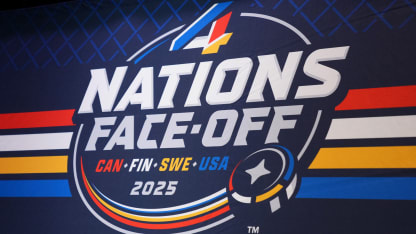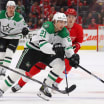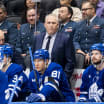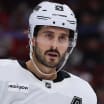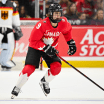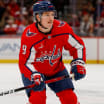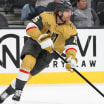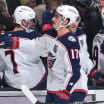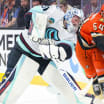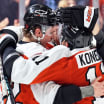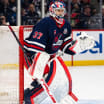That event in Italy, known as the Milano-Cortina Games, will mark the 30th anniversary of one of the landmark victories in USA Hockey history. In 1996 the United States, with Guerin a key member up front, defeated Canada in the best-of-3 Final to win the World Cup of Hockey.
“A lot of us in my generation were inspired by the 1980 U.S. ‘Miracle on Ice’ gold medal Olympic team,” Guerin said. “In that same way, I think our 1996 team inspired a new generation of American kids to play the game.
“Players and fans are looking forward to this tournament. It’s always great to see best-on-best like this.”
What has best-on-best hockey looked like in the three decades since Guerin and the Americans were victorious? With the topic of 4 Nations front and center in the coming days, here’s a rundown:
1996 World Cup of Hockey
Winner: United States
The Skinny: The most impressive part of the performance of the Americans is the stage upon which they rose to the occasion. The best-of-3 Final was decided when the United States scored four goals in the final 3:18 of regulation to win the third and deciding game 5-2 against the host Canadians. When the final horn sounded, they celebrated on the ice in front of the raucous-turned-silent pro-Canadian crowd at the newly-opened Bell Centre in Montreal. Goalie Mike Richter of the U.S. was deservedly named the tournament’s most valuable player after turning in a 2.43 goals-against average. Richter’s teammate, Brett Hull, finished atop the tournament with 11 points (seven goals, four assists).
1998 Nagano (Japan) Olympics
Winner: Czech Republic
The Skinny: With NHL players allowed to compete, Buffalo Sabres goalie Dominik Hasek Hasek was the star of the tournament, allowing just two goals in the three games of the medal round for the Czech Republic. The most controversial decision of the event came when Canada coach Marc Crawford opted not to use Wayne Gretzky in the semi-final shootout against Hasek, a game the Canadians lost 2-1. Teemu Selanne of Finland led all scorers with 10 points (four goals, six assists) in five games.
2002 Salt Lake City Olympics
Winner: Canada
The Skinny: Canada ended a 50-year Olympic gold medal drought by defeating the U.S. 5-2 in the championship game, causing fans to break out into a rendition of “O Canada” as the final seconds ticked off. But the tournament also will be remembered for the monumental 4-3 upset by 0-3-0 Belarus against 3-0-0 Sweden in the elimination round, thanks to a shot from the neutral zone by Vladimir Kopat from just over center ice that handcuffed Sweden goalie Tommy Salo and plopped into the net with just 2:24 left in regulation. When the final horn sounded, Sweden captain Mats Sundin, who finished as the tournament’s leading scorer with nine points (five goals, four assists) in four games, slumped to the ice and looked to the sky in disbelief. Belarus was so sure prior to the game it would lose, it already had travel arrangements in place to fly home the following day. Obviously, those were changed.
2004 World Cup of Hockey
Winner: Canada
The Skinny: Canada was dominant from start to finish, going a perfect 6-0-0 thanks in part to Martin Brodeur. Coming off a gold-medal performance in Salt Lake City two years earlier, Canada’s No. 1 goalie was dominant in allowing just five goals in five games. Their biggest scare in this event came in the title game when Canada squeezed out a 3-2 victory against Finland in Toronto. Unheralded forward Fredrid Modin was the leading scorer in the tournament with eight points (four goals, four assists) in four games for Sweden.
2006 Turin (Italy) Olympics
Winner: Sweden
The Skinny: In what generally is regarded as the pinnacle of Swedish hockey history, it defeated bitter rival Finland 3-2 in the championship game to win gold. This team should be one of the greatest the hockey world has ever seen when you consider it had seven eventual Hockey Hall of Famers on its roster: goalie Henrik Lundqvist; defenseman Nicklas Lidstrom; and forwards Sundin, Daniel Sedin, Henrik Sedin, Daniel Alfredsson and Peter Forsberg. Selanne (six goals, five assists), himself a future Hall of Famer, and Saku Koivu (three goals, eight assists) led the tournament in scoring with 11 points each for Finland, but it was Sweden that would have the last laugh.
2010 Vancouver Olympics
Winner: Canada
The Skinny: Sidney Crosby’s overtime goal that gave Canada a 3-2 victory against the U.S. in the title game became one of the most iconic moments not only in Canadian sports history but Canadian history, period. Simply put, it is forever known north of the border by three words: The Golden Goal. Not that it was any consolation to the U.S. players in the end, but they deserve credit for eclipsing a 2-0 lead in front of a hostile crowd on goals by Ryan Kesler and Zach Parise, the latter coming with 25 seconds left in regulation. Then came overtime, the stage upon which Crosby would become a national hero for all-time.
2014 Sochi (Russia) Olympics
Winner: Canada
The Skinny: In football, the process of a team using the run game to grind down opponents and siphon time off the clock is known as “taking the air out of the ball.” In this instance, Canada displayed the hockey version of that by implementing what some broadcasters referred to as “taking the air out of the puck” with a suffocating defense-first game that gave the other teams very few quality scoring chances. Case in point: Goalie Carey Price allowed just one goal in three playoff-round games, including a 3-0 shutout against Finland in the gold medal game. U.S. forward Phil Kessel (five goals, three assists) and Sweden defenseman Erik Karlsson (four goals, four assists) tied for the lead in tournament scoring with eight points each.
2016 World Cup of Hockey
Winner: Canada
The Skinny: Do you remember Canada’s two-game sweep of Europe in the best-of-3 Final to claim the title? Probably not. What is memorable about this tournament, however, was the composition and exhilarating performance of North America, a team made up of North American-born players aged 23 and under. Some of the names on that team who have gone on to become stars in the NHL, if they weren’t already: goalie Connor Hellebuyck; defensemen Aaron Ekblad, Morgan Rielly, Seth Jones and Jacob Trouba; and forwards Connor McDavid, Auston Matthews, Nathan MacKinnon, Jack Eichel, Dylan Larkin, J.T. Miller, Mark Scheifele, Vincent Trocheck, Ryan Nugent-Hopkins and the late Johnny Gaudreau. One of the greatest cache of young hockey talent you’ll ever see, many of whom will be featured in the 4 Nations Face-Off in two months.
